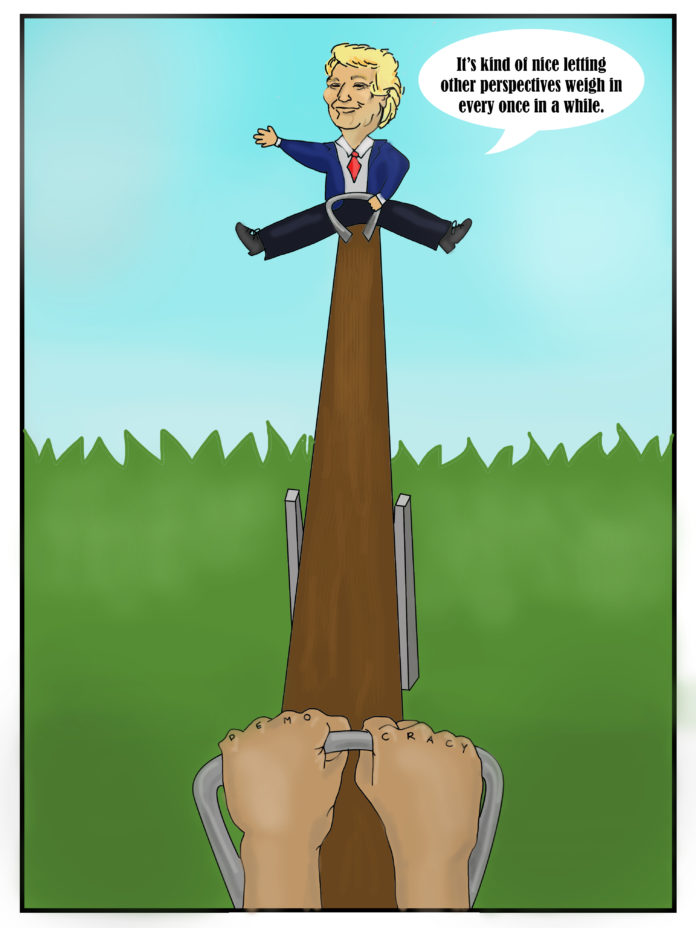President Donald Trump signed a bill on Sept. 8 that raised the debt ceiling to keep the government open for three months and sent $15 billion to areas affected by Hurricane Irma as relief funding.
Trump surprised many people by siding with Democrats in support of the bill. The final vote was 80 to 17. All 17 no’s were Republicans.
House Speaker Paul Ryan told the The New York Times that Trump’s decision to side with Democratic leaders was an attempt at “a bipartisan moment for the country.”
“He wanted to make sure that in this moment of national crisis where our country’s getting hit by two horrible hurricanes, that he wanted to have a bipartisan response and not a food fight on the timing of the debt limit attached to this bill,” Ryan said to the New York Times.
Trump making the effort to work with both parties is a big deal and is work that needs to be continued. We, as Americans, want him to be someone who works with leaders of his party in addition to leaders on the other side.
We hear about bipartisanship a lot, but it is rarely practiced or well-executed. We live in an extremely politically-polarized world. In general, we associate with people who think like us. Therefore it is not unusual for most of your friends to align with the same political party.
Bill Bishop, author of the book “The Big Sort,” argues that Americans have placed themselves into areas where they never really have to encounter members of another political party. We read different publications, go to different churches and basically live different lives than people who politically disagree with us.
Bishop says that while America may be more diverse as a whole, the places where we live are becoming increasingly populated by people who live, think and vote like we do. This didn’t happen by accident; this is confirmation bias. We’ve built a country where we can choose the neighborhood, church and news network that are most compatible with our lifestyle and beliefs. We are living with the consequences of phenomenon.
“Congress works best when members have mixed relationships,” Bishop writes. “If a person is simply an ideological opponent, it’s easy to turn him into the enemy. But if your kids are in the same school play, that opponent is also a friend. Legislatures work most smoothly if they are slathered with some social grease.”
Our political leaders need to be able to transcend this polarized way of life in order to effectively do their jobs. In democracy, a leader elected is not only the representative for those who voted for him or her; their constituents include those whose political ideology differs in every way, but they still must lead and represent them.
Hurricane relief and the debt ceiling are not the only issues that need bipartisan reform. In order to unify the country, we need reform from both sides of the aisle on issues like immigration, race relations and health care.
These issues affect everyone regardless of political affiliation, race, religion, sex or socio-economic status, so the reform must come from both parties if we are going to establish lasting solutions to our nations problems.
Correction: Sept. 21, 2017
This article has been revised to reflect the following correction: An earlier version of this story inaccurately stated the dollar amount of relief money sent to areas affected by Hurricane Irma.






